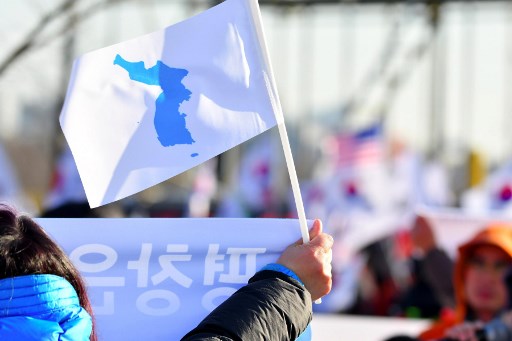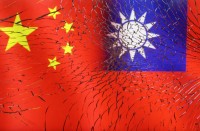
TOKYO, Japan (AFP) — Japan said Monday it had lodged a protest with South Korea over the “unacceptable” use of a unified Korean Olympic flag that features a set of disputed islands.
The two Koreas have agreed to march together under the unification flag — a pale blue silhouette of the peninsula — at the Games’ opening ceremony on February 9, and to form a combined women’s ice hockey team.
The flag shows a blue dot indicating the islands in the Sea of Japan controlled by South Korea but claimed by Tokyo.
They are known as “Dokdo” in Korean and “Takeshima” in Japanese.
“The flag is unacceptable, based on our stance on our sovereignty of Takeshima,” Chief Cabinet Secretary Yoshihide Suga told reporters, adding the incident with just days until the start of the Games in Pyeongchang was “extremely regrettable.”
“We lodged a protest strongly insisting on our stance through diplomatic channels to South Korea,” he said, adding that Tokyo will continue to urge Seoul to deal with the case “appropriately.”
The new spat comes a month after Japan opened a museum in Tokyo devoted to the disputed islands, drawing an immediate protest from South Korea.
The museum, run by the Japanese government, also displays documents and photographs defending Japan’s claims over another set of islands disputed with China.
The controversial flag has already been waved by spectators during a women’s ice hockey practice match between Sweden and the unified Korean team.
Japanese Prime Minister Shinzo Abe will travel to South Korea for the opening ceremony of the Games, where he is expected to hold talks on Korean “comfort women” used by the Japanese as war-time sex slaves — another thorny issue between the two countries.
© Agence France-Presse







